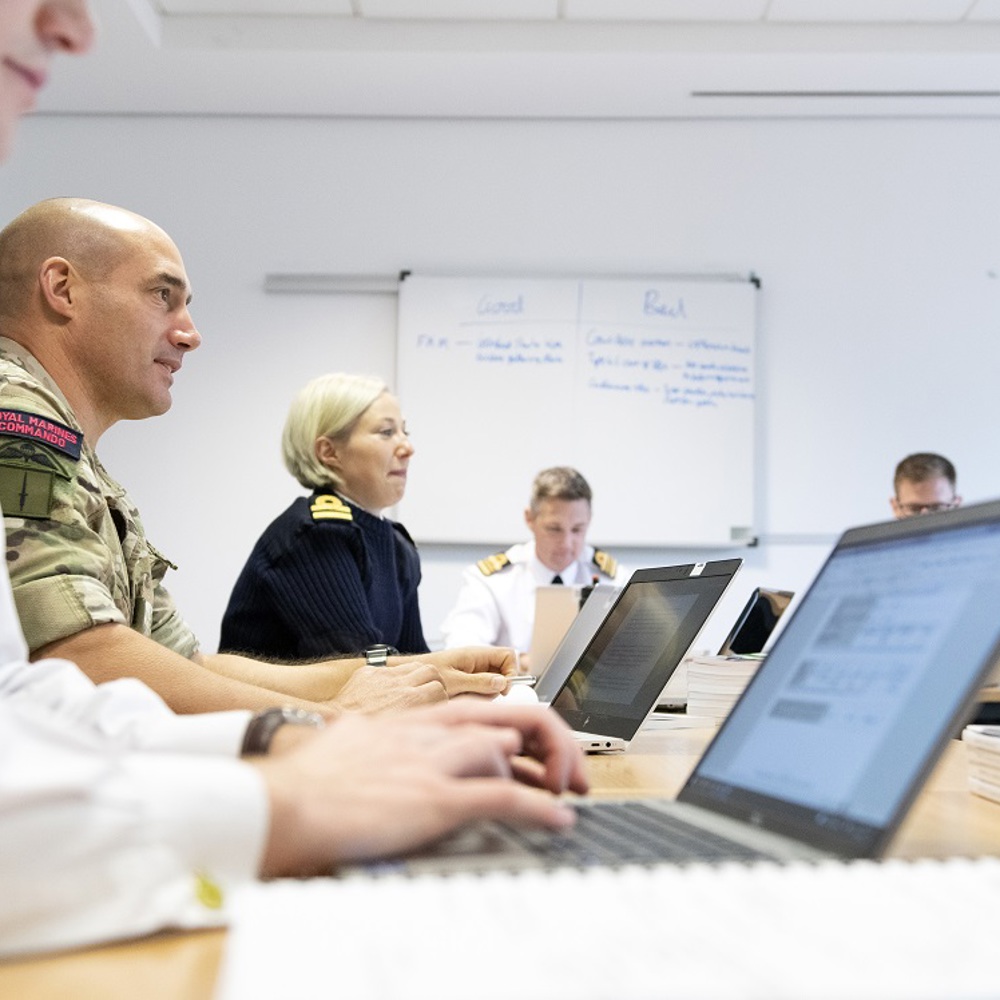Course Information
About this course
Course duration: MSc: 11 months full-time. No part-time MSc will be offered in Sep 26 \ PgDip: 11 months full-time; up to 20 months part-time and study to be completed by Jul 28 \ PgCert: up to 11 months full-time; up to 20 months part-time and study to be completed by Jul 28.
This postgraduate course is delivered by Cranfield University on behalf of the Defence College for Military Capability Integration.
This course addresses the design, development, procurement, use and management of models and simulations for applications in experimentation, training, testing, analysis and assessment of military forces, systems and equipment.
The application of modelling and simulation continues to enhance and transform systems development and training. It allows representation of increasingly complex equipment, systems and scenarios for the purposes of decision support and helps to reduce wear on live equipment and on test and training areas.
On successful completion of the course you will be familiar with the technologies, methodologies, principles and terminology of modelling and simulation as used across defence, including the challenges and issues as well as the benefits. Through use of facilities such as the Simulation and Synthetic Environment Laboratory (SSEL), with its wide range of specialist applications, students will gain a broad understanding of modelling and simulation in areas such as training, acquisition, decision-support, analysis and experimentation.
The course has two component parts: a taught phase consisting of eight 10-credit modules, which includes two core modules (Foundations of Modelling and Simulation and Networked and Distributed Simulation), plus four advanced modules; and (MSc) a 40-credit thesis in a relevant topic.
Standard modules normally comprise a week of teaching (or equivalent for the limited distance learning options available), followed by a further week of directed study/coursework (or equivalent for part-time and distance learning).
Advanced modules will enable you to explore some areas in greater depth, are two-week (or equivalent for part time) individual mini projects on an agreed topic in that subject which includes a written report and oral presentation.
Cranfield University's requirement to keep their courses up-to-date and current requires constant innovation and change. The modules they offer reflect the needs of business and industry and the research interests of their staff and, as a result, may change or be withdrawn due to research developments, legislation changes or for a variety of other reasons. Changes may also be designed to improve the student learning experience or to respond to feedback from students, external examiners, accreditation bodies and industrial advisory panels.
The module list is detailed below. Modules are indicative only and may be subject to change for your year of entry.
All the modules in the below list are compulsory and need to be taken as part of this course:
Foundations of Modelling and Simulation
Modelling and Simulation Techniques and Acquisition
Networked and Distributed Simulation
Networked and Distributed Simulation Exercise
Experimentation, Analysis and Trials for Simulation
Synthetic Environments & Virtual Simulation
War Gaming and Combat Modelling
Weapon System Performance Assessment
You may also elect to undertake a number of standalone modules as opposed to an MSc, PgDip or PgCert, with or without the associated assessment. A number can only be taken with assessment; for the most up-to-date information on this, refer to the module web page above. Applications for standalone modules can be made direct to Cranfield University via the web page linked above.
How this course will help your career
This qualification may equip you for simulation-specific appointments within the armed forces or government, or in the defence related activities of commercial organisations.
Entry requirements
Who can attend this course
- Military
- MOD civil servants
- Industry
- Internationals
All applicants to courses that are wholly or partially delivered at Shrivenham must complete the BPSS (HMG Baseline Personnel Security Standard V4 April 2014) prior to registration on the course or must already hold a security clearance level or higher).
Before you attend
You must have one of the following:
A first or second class honours degree or equivalent in science, engineering or mathematics. Alternatively, a lesser qualification together with appropriate work experience may be acceptable.
Additional information
How the course will be taught
- Face-to-face
How you will be assessed
Assessment is 50% by coursework, 10% by exam and 40% thesis/dissertation. This degree has been accredited by Cranfield University.

